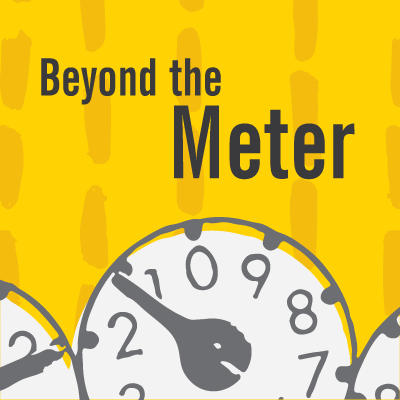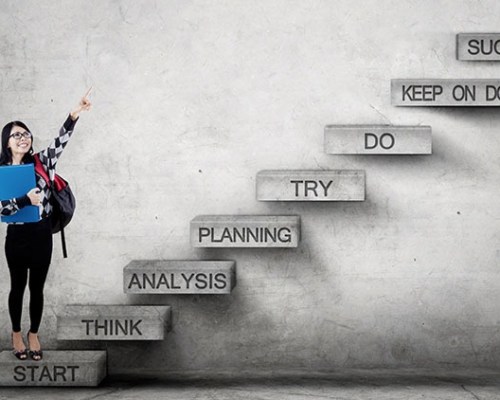Earning the Grade in Sustainability: Helping schools achieve energy savings while enhancing curriculum
School executives juggle many responsibilities and challenges, and few are as complicated as understanding energy and sustainability initiatives in the campus environment. Often these responsibilities fail to make the executive meeting agenda in order to make room for more pressing academic and student service initiatives.
Yet setting aside time to focus on energy and sustainability can be rewarding in many ways. By successfully following a few simple suggestions, you will be able to quickly identify the areas where you can impact your school finances and directly impact your carbon footprint.
And by involving your faculty and students, everyone can share in the success and achieve the associated environmental learning outcomes.
The following tips can help elevate any school leader to energy superhero status and demonstrate to your students, parents, faculty and staff that your school is leading the way to a better energy future.
You can get started with a trusted energy advisor in as little as an hour each month by applying these simple management concepts!
Be an Energy Master – Conserving power is easier now than ever. Technology has advanced rapidly in lighting, controls, analytics and mechanical systems and there are often programs available to speed along the savings. Whether you want to start slowly with less capital or move quickly by using outsourced capital, there are creative financial solutions available today to help you quickly implement Energy Conservation Measures (ECMs). And the best part is that the stream of savings can often be applied to finance much of your deferred maintenance backlog of repairs.
Be Energy Proactive – Procrastination is perhaps the largest consumer of energy on your campus. Every hour we delay in examining and implementing ECMs places more carbon in the atmosphere and robs precious revenue from your annual operations. So often, the decision to delay or delegate moves from weeks to months and months to years. Set time quarterly to check up on your energy progress.
Be an Energy Planner – The best way to achieve your ECM goals and benefit from savings is to build and execute an energy action plan. Plans can be very complicated or very simple depending on your goals. Not an expert? No worries! There are many resources available today including programs with free audits, shared savings and affordable assessments tailored to your specific needs and goals. Find a trusted advisor to help you navigate the realm of energy and be sure to include your Head of School, CFO and faculty in the initiative!
Be an Energy Educator – When John Maxwell said, “Experience isn’t the best teacher, evaluated experience is,” he’s talking about the importance of borrowing from others’ experiences. Consider integrating energy savings and solar power into your curriculum. When you update your facilities technology, share dashboard and technology with your faculty. Allow students to watch firsthand what takes place with thermal exchange, PV energy generation and ECM activities. Your school can become a massive energy laboratory with just a bit of additional expense. Consider asking your energy advisors to help with curriculum on occasion and loan their experience to your faculty and students. This can work across the curriculum into mathematics, environmental science, physics, finance and marketing. Use this living lab to involve students of all ages so that they build on their knowledge from year to year advancing their understating and creating skills that will benefit STEM capabilities across time.
Be an Energy Media Magnet – Take your message to the world: Let parents, benefactors and perspective students know that you are engaged with energy and sustainability and how your efforts support education, financial responsibility, and environmental stewardship. Be proactive in communicating the positives about your energy action plan. Include images of your students and faculty engaged in the process.
Be an Energy Investigator/Innovator – No worries if you have already replaced your lighting and achieved round one of your energy goals. ECMs go much further than LED lighting! An effective energy investigator looks deeper for savings in mechanical infrastructure, controls systems and analytics to make certain that savings are continuously delivered across time. Make certain that your providers understand “Deep Energy Retrofits” and that they have a mechanism to track success across time delivering successful outcome and not just projects and equipment sales!
Be an Energy Collaborator – There is no need to feel as if you must do this all alone. You can be an effective leader and agent for change just by starting the conversation! Simply click the mouse and start the journey to find an external resource to help guide you along the way. Perhaps tap a few folks on your campus to join you in this journey and engage your Head of School at least quarterly. Consider having conversations with several providers to see who best understands your needs and who has business models that are transparent and easy to understand. Most importantly, set aside at least one hour monthly to collaborate with your ECM outsourced advisor. And one last note, involve your facilities team but also consider that a fresh perspective from an external provider may provide a valued experience perspective for you to consider as well.
For additional perspective, listen in on our podcast with representatives from California Polytechnic State University, Ithaca College and Duke Energy Sustainable Solutions as we take an in-depth look at evolving energy strategies in higher education. In addition to discussing their sustainability goals and respective master plans, they also explore energy management strategies, financing options and what is on the horizon in higher education. (Listen Here).
About the author:
Wayne Johnson is the Key Segment Manager for Duke Energy Sustainable Solutions and is available to Board Members, CFOs and Head of Schools to help start your conversations on Energy and Sustainability in Independent School.



